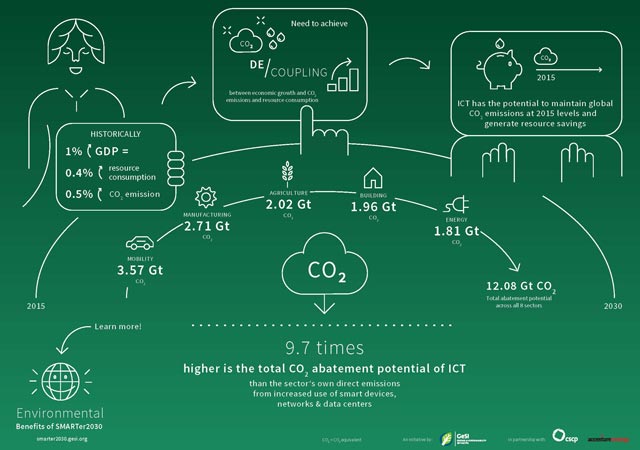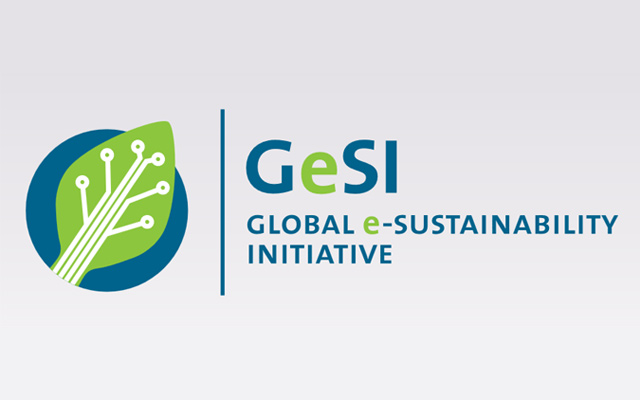How Information and Communications Technology Can Help Address Climate Change
Global policymakers scheduled to attend this year’s Paris Climate Conference are preparing to address the pressing need of keeping global warming below 2 degrees Celsius.
At Verizon, we believe that our communications solutions can support this important goal. To advance research into how information and communications technology, or ICT, can deliver a low-carbon future. Verizon serves on the board of the Global e-Sustainability Initiative, an industry association known as GeSI.
GeSI provides research and best practices for achieving integrated social and environmental sustainability through ICT. GeSI just released the SMARTer2030 report, which indicates that ICT -- such as our network-based telematics and smart city solutions -- can enable a 20 percent reduction of global CO2e emissions by 2030. CO2e, or carbon dioxide equivalent, describes different greenhouse gases in a common unit and signifies the amount of CO2 that would have the equivalent global-warming impact.
The findings are significant. Historically, every 1 percent increase in global GDP was accompanied by approximately a .5 percent increase in carbon emissions. However, this new research suggests that deploying effective ICT solutions could reduce total global emissions of CO2e by 12Gt by 2030, decoupling economic and emissions growth and promoting a path to sustainable growth.

The SMARTer2030 report illustrates that as ICT has become faster, cheaper and more accessible globally, it generates powerful environmental, economic and social benefits. The report's key findings include:
- Emissions avoided through ICT are nearly 10 times greater than the emissions generated by deploying it (1.97 percent of global emissions in 2030).
- Eight sectors (energy, food, manufacturing, health, building, work, learning and logistics) will deliver the most significant ICT-enabled sustainability benefits – over $11 trillion – to the global economy.
- The most substantial environmental benefits identified include increasing agricultural crop yields by 30 percent, and saving over 300 trillion liters of water and 25 billion barrels of oil per year.
ICT is a powerful tool for corporations to increase their operational efficiency while minimizing their carbon footprint. At Verizon, our smart solutions enable our customers to better manage their buildings and fleets, run power grids and telecommute.
In 2014, our services empowered our customers to reduce their CO2 emissions by 13 million to 17 million metric tons – the equivalent of taking 3 million cars off the road.

At the heart of Verizon’s solutions is the Internet of Things, which connects people, systems and machines in innovative ways. A Smarter 2030 for Verizon means using our connectivity to deliver solutions that help communities become more sustainable and resilient.
